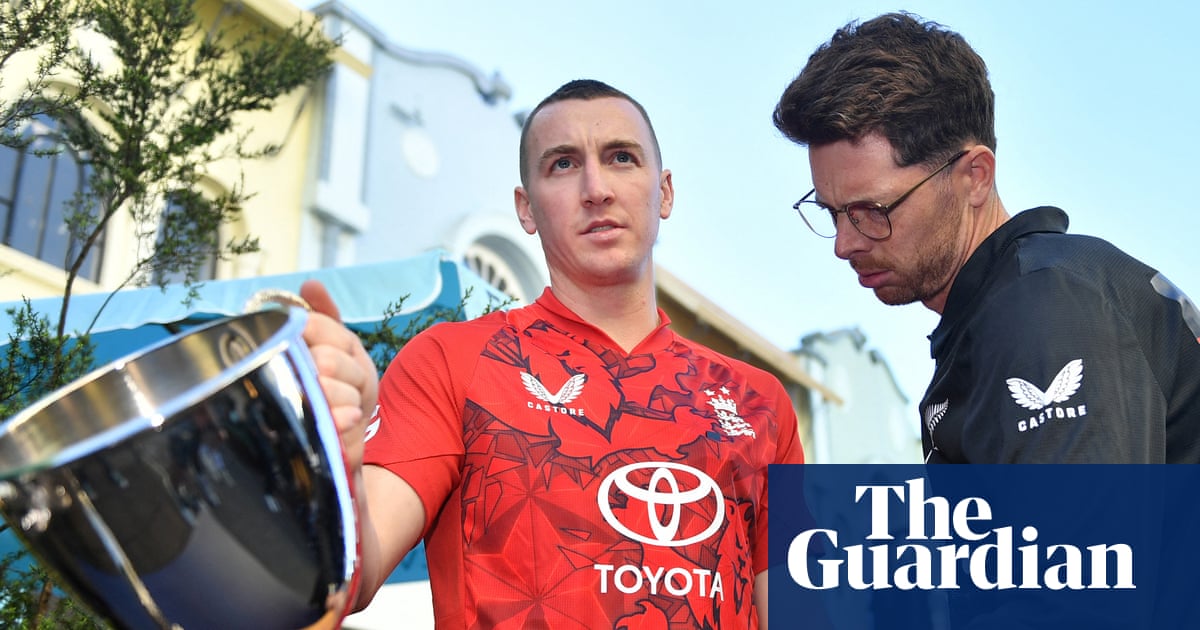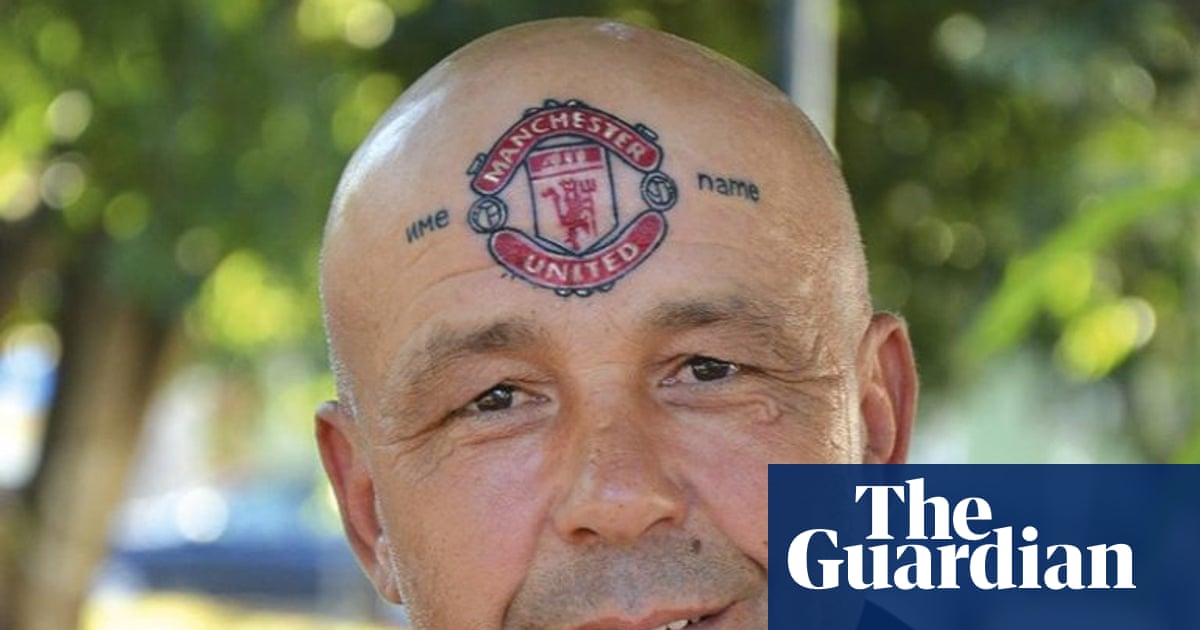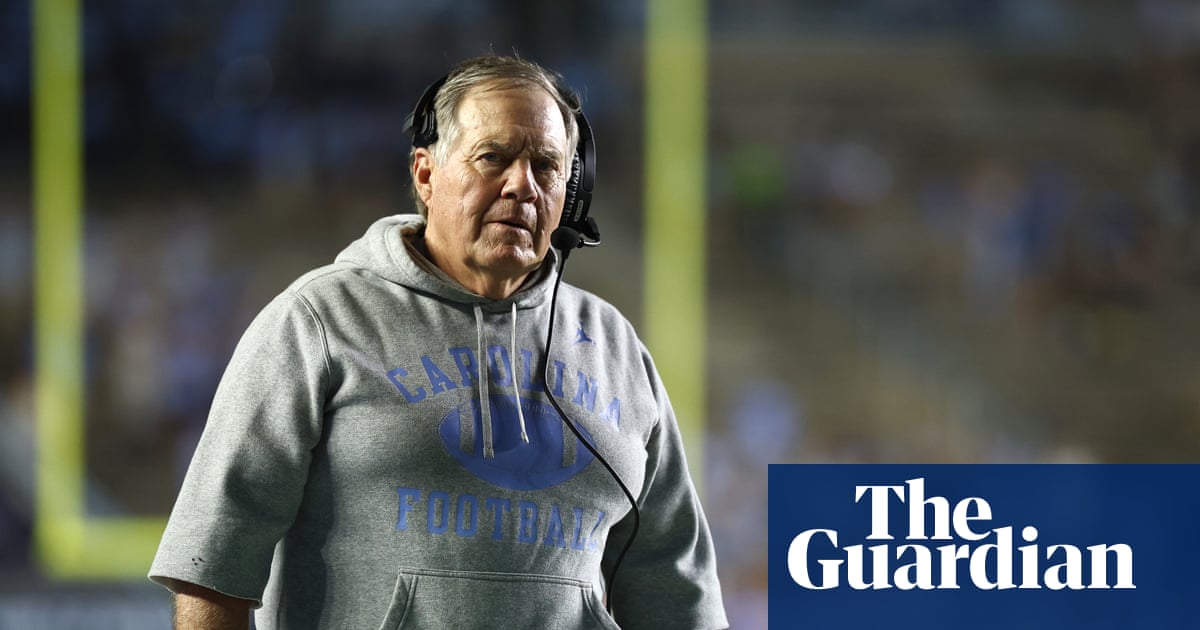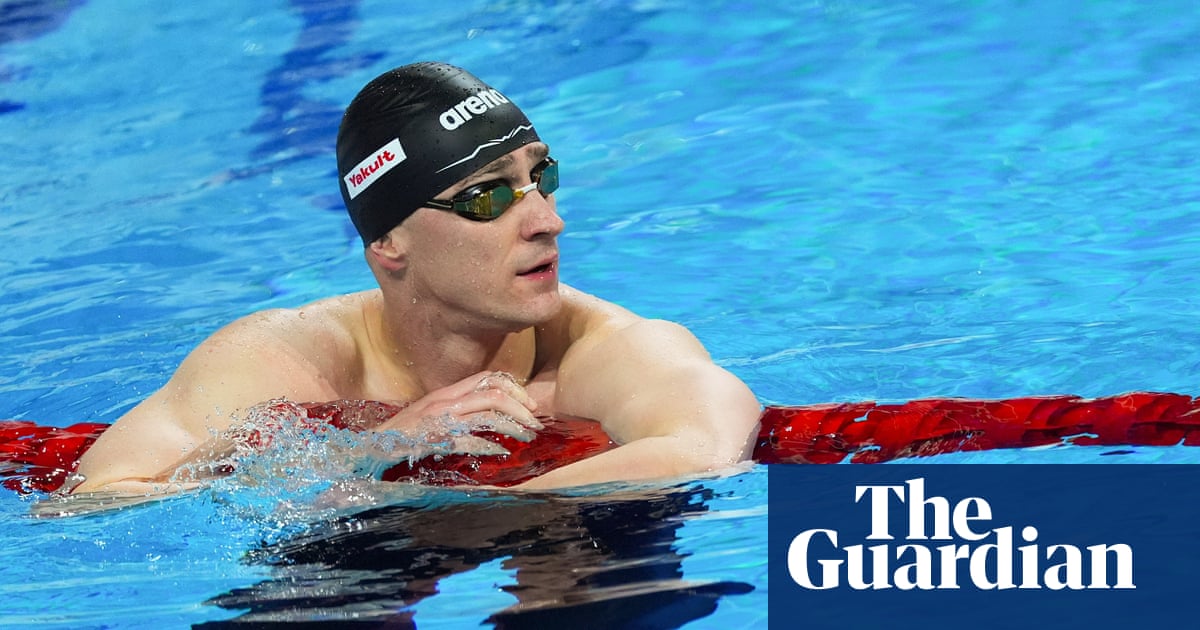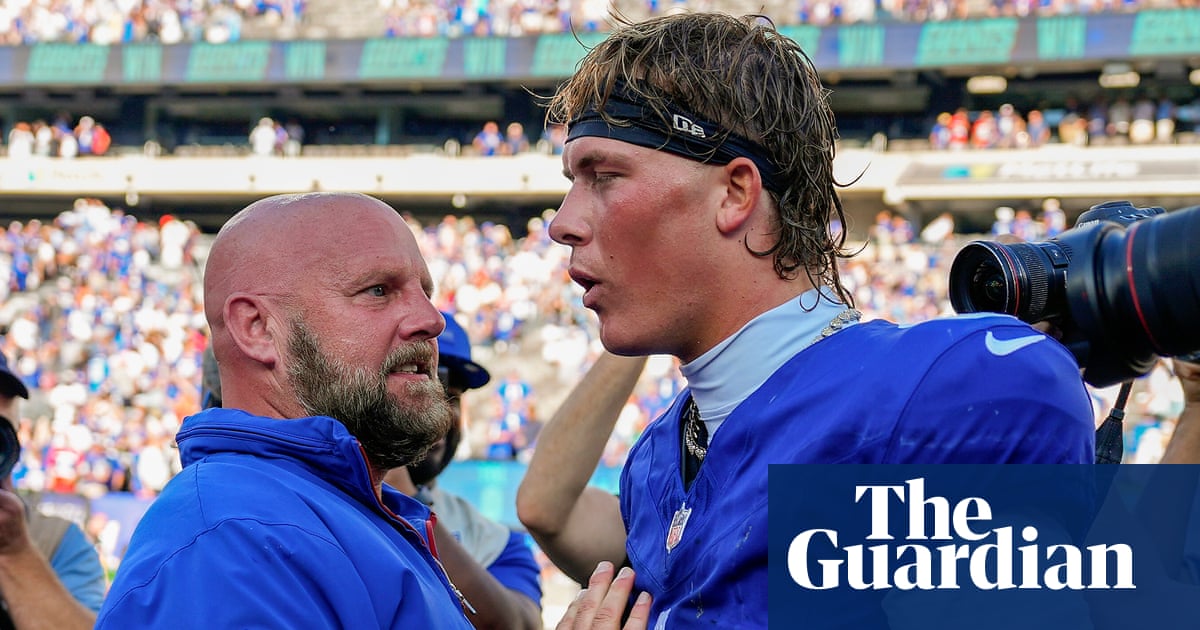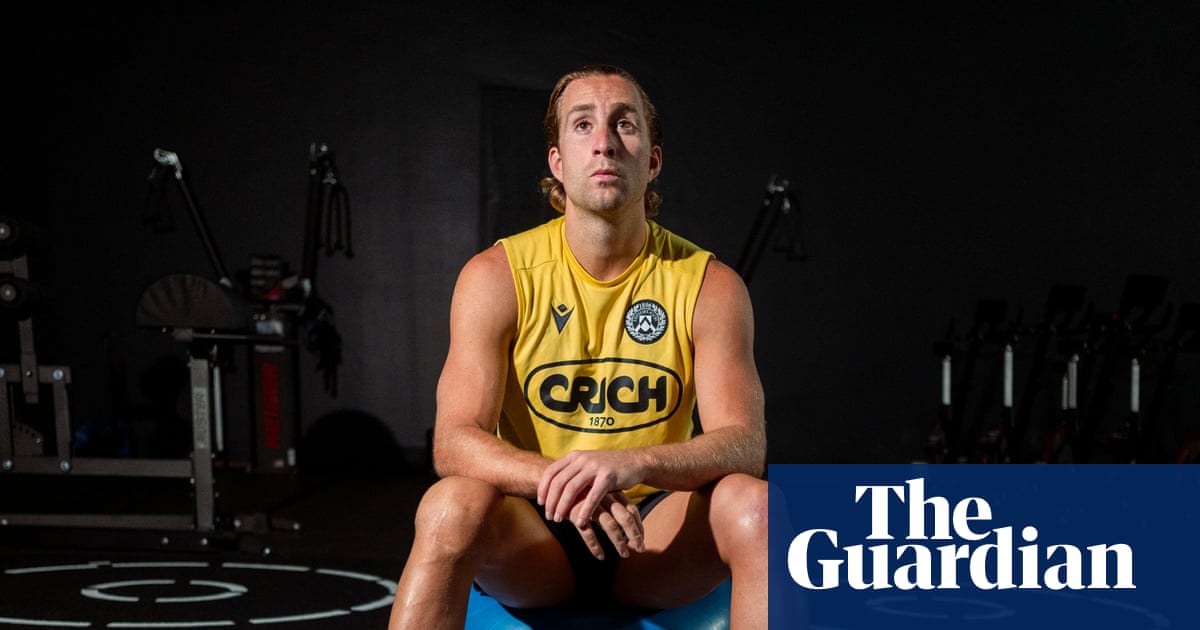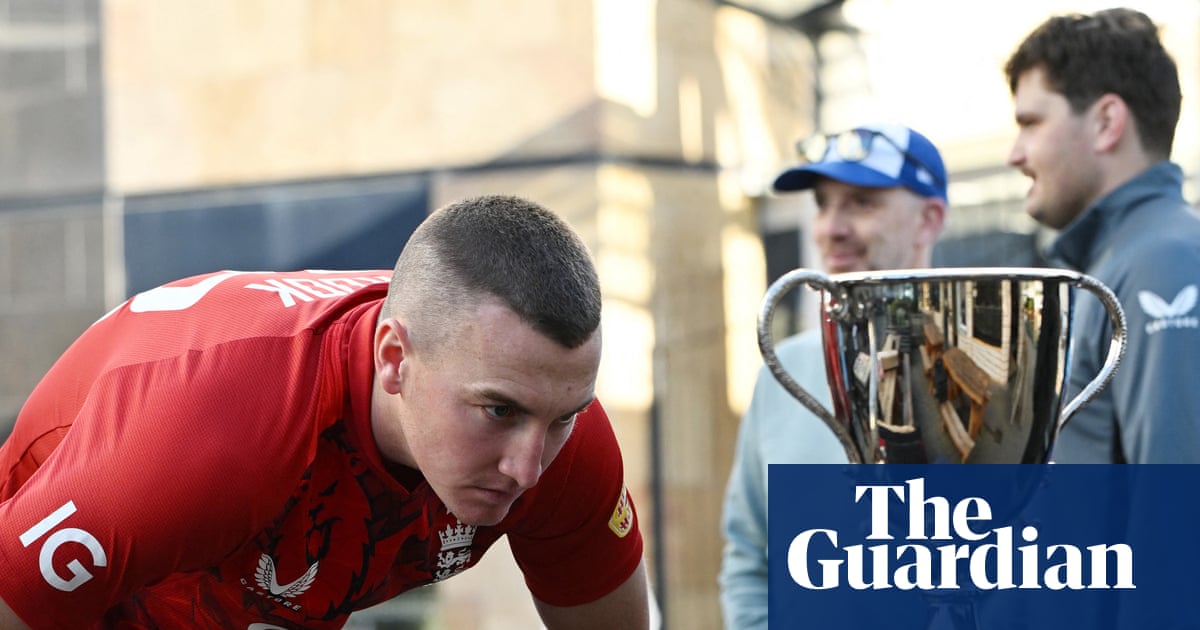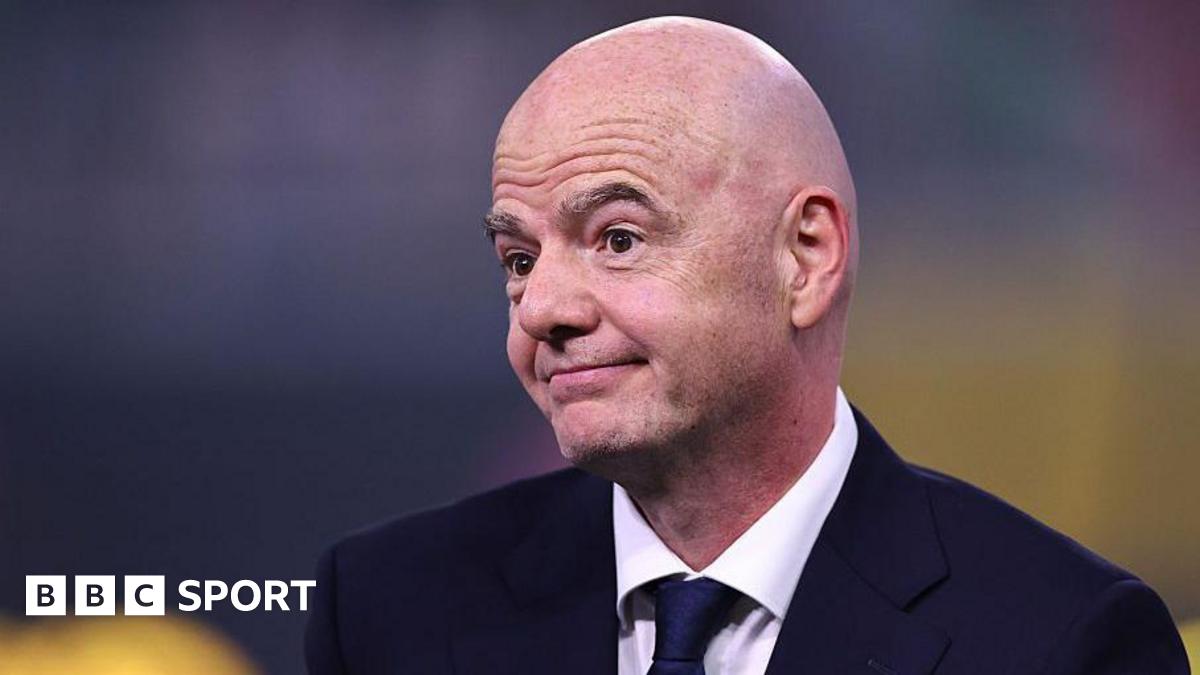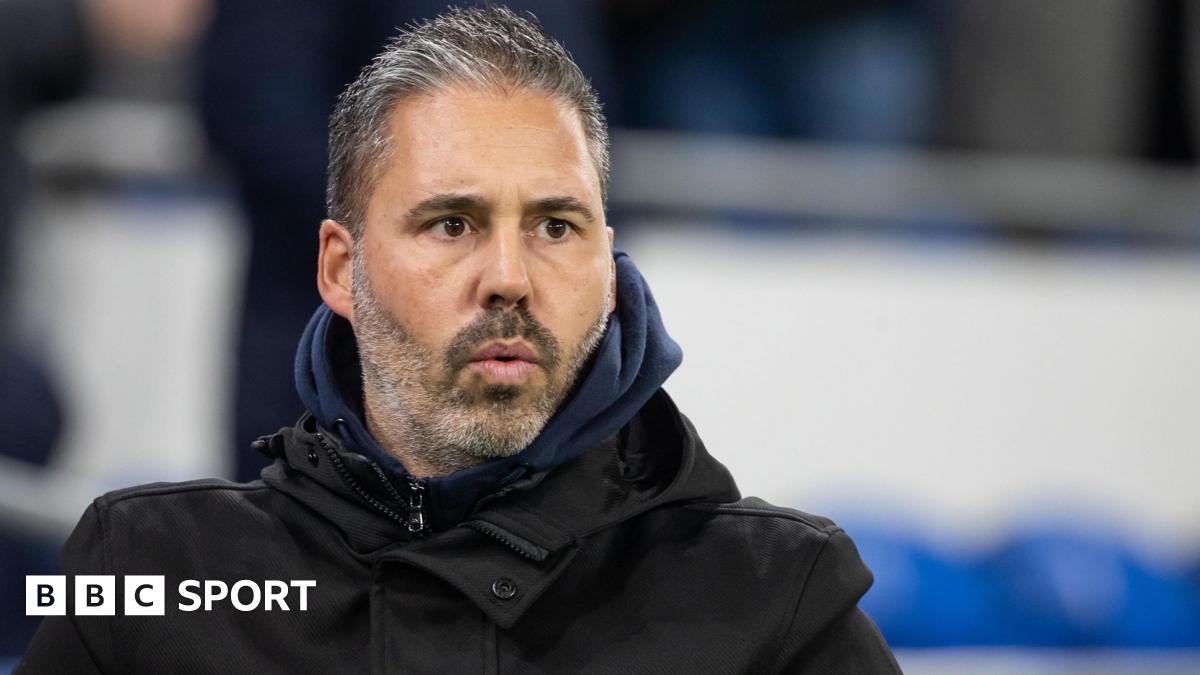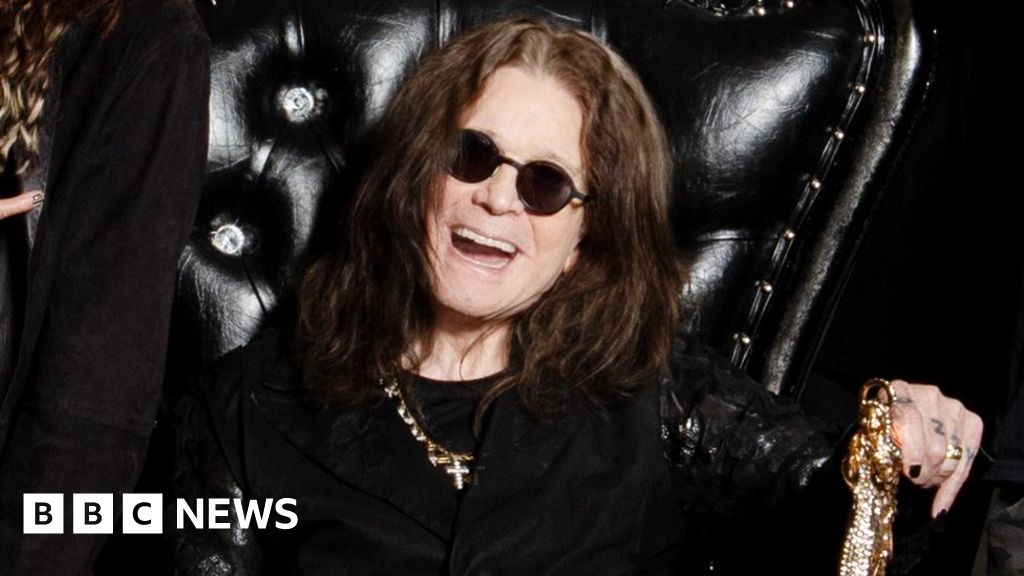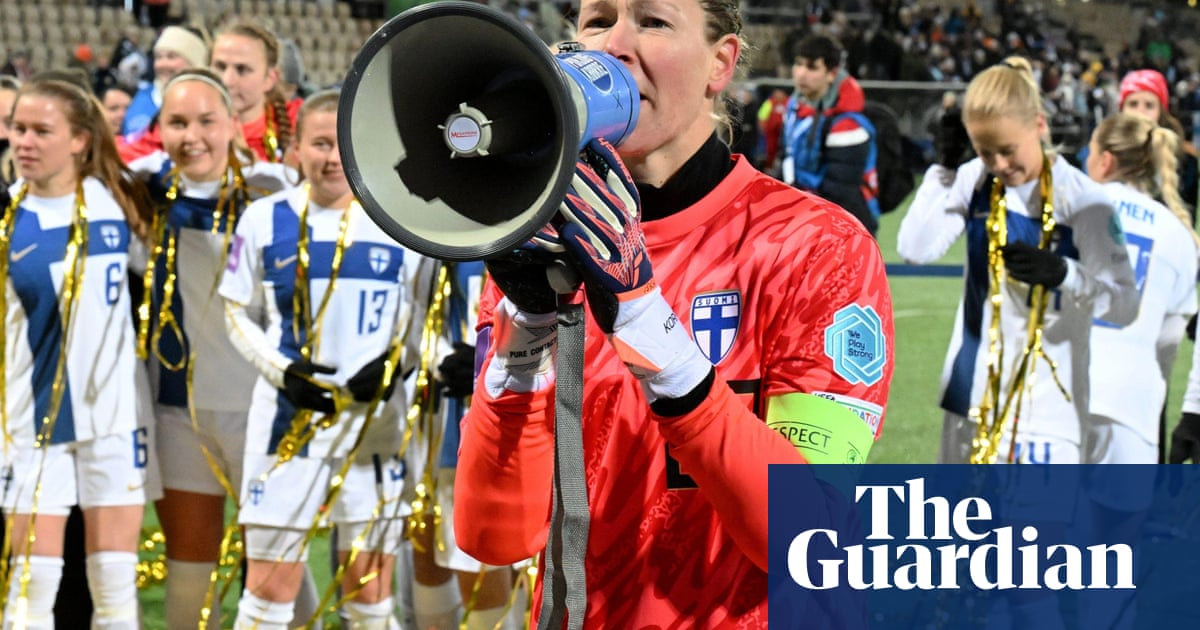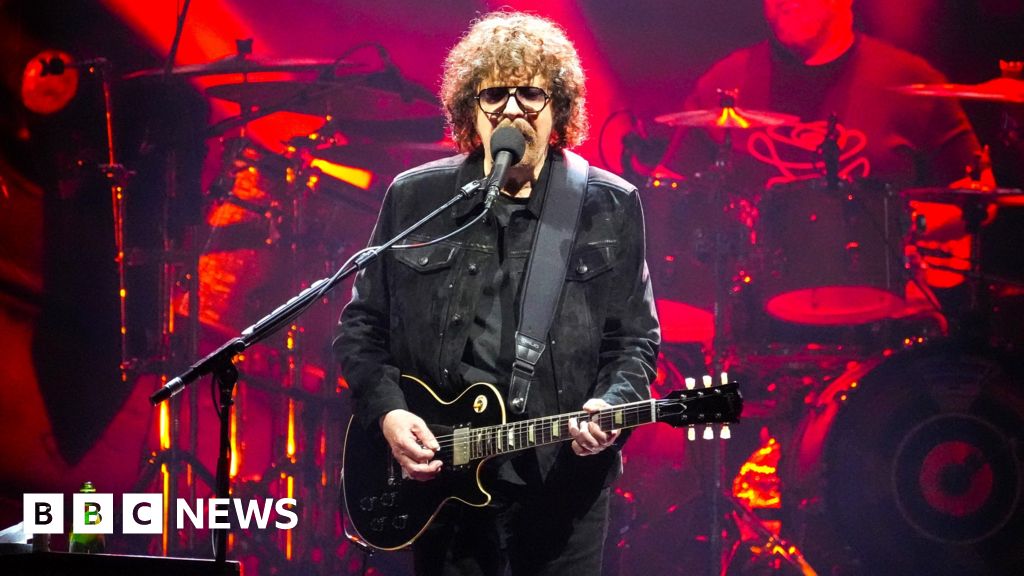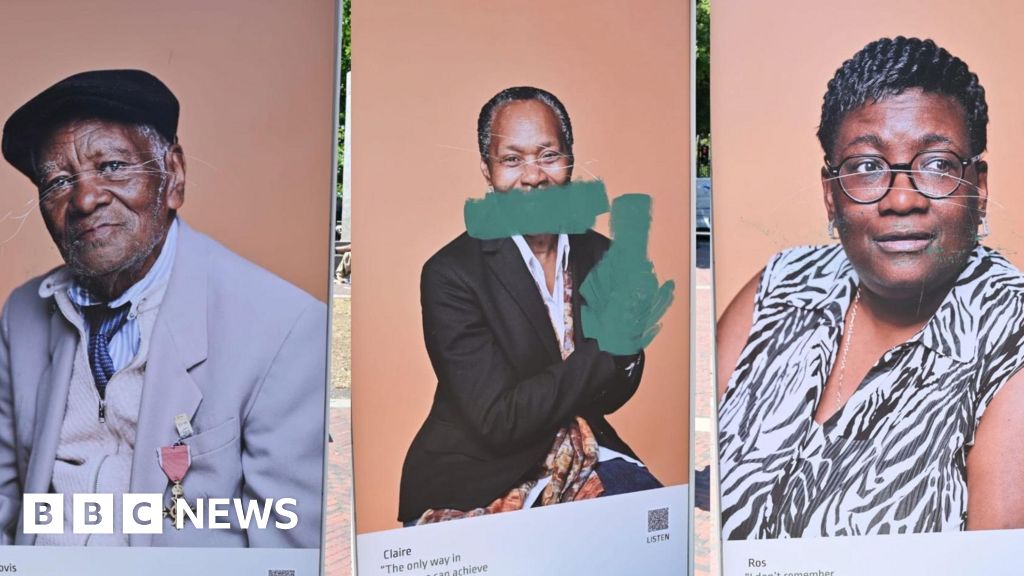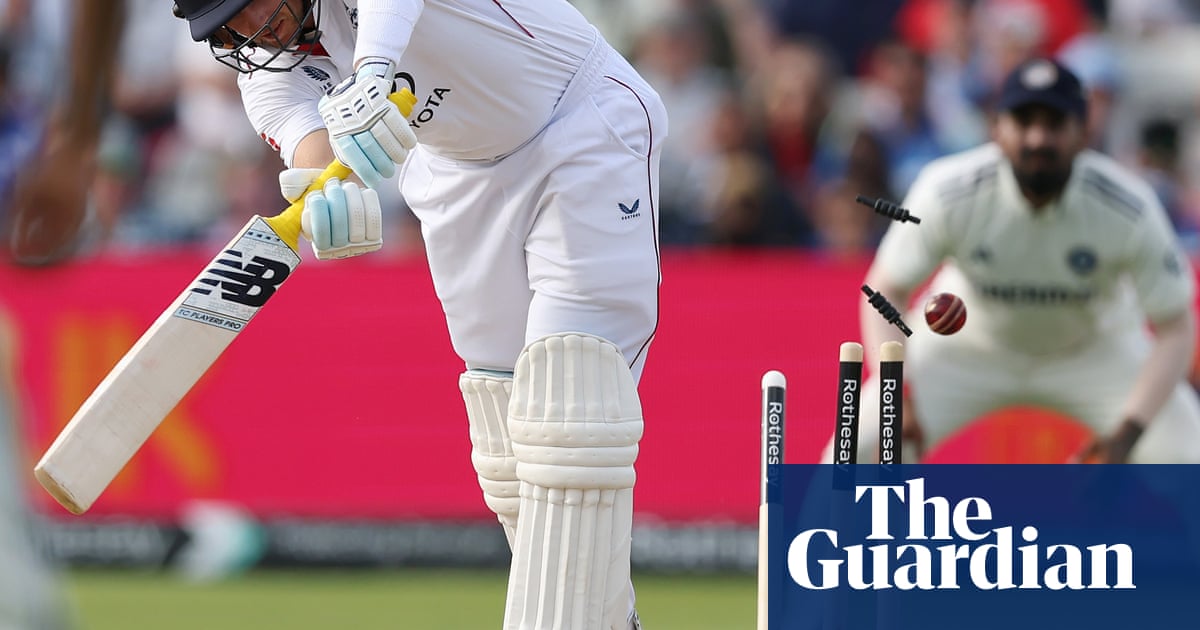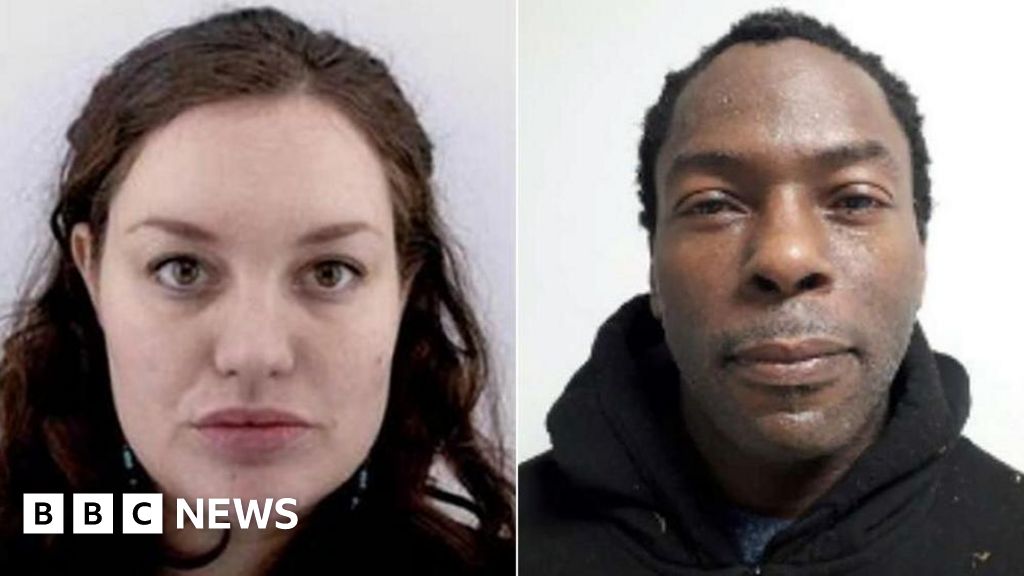‘I didn’t feel good,” Oisin Murphy says with a grimace as he gestures towards the birthday cards still standing in his house more than a month since he turned 30. Murphy has already spoken for an hour, in raw and moving detail, about the guilt he will feel when he has to walk down a guard of honour to mark his fifth champion jockeys’ title at Ascot on Saturday, his daily struggle with alcoholism, his near catastrophic return to drinking this summer, the dangers of racing and the Sylvia Plath poem he loves most.
But the milestone of his 30th birthday troubles him. “It was incredibly significant because I never thought I’d get to 30,” Murphy says, as he uses a smouldering cigarillo to light another in an unbroken chain stretching across this corner of Lambourn.
They call it the Valley of the Racehorse and, on a Monday morning, mist hangs over the village – in the same way that Murphy is enveloped in a cloud of smoke. “I never had any plans past 30,” he says amid a fresh puff.
Did he think he would die before then? “It wasn’t quite that morbid but all the time you have targets: ‘I want to win this race, I want to win this championship, I want my own house.’ I never made any targets past 30.
“That’s another thing getting to 30. Lots of people are in serious relationships and beginning to have children. Maybe I’m selfish. I was in a very serious relationship with a beautiful girl and a lovely person, Elizabeth Nielsen. That ended at the beginning of this year, but we’re still very good friends. We still speak almost every day. Most of my ex-girlfriends I’ve remained friendly with, which is great. I never feel like the reason those relationships ceased was because of them. It was because of me.” Is he close to finding new targets for himself? “It’s very different now. Every day I have to work at being sober and it’s going well. But I’ve had good periods in the past … ”
In late April he was driving at night when, with a passenger alongside him, he crashed into a tree. Murphy was fortunate that no one was hurt because, hours after the accident, he was “just shy” of having twice the legal limit for alcohol in his system. When the case went to court in July, he was fined £70,000 and banned from driving for 20 months.
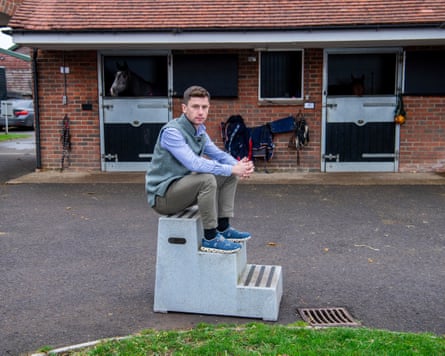
These were the latest in a litany of punishments. Murphy’s longest suspension occurred in December 2021 when he was banned for 14 months by the British Horseracing Authority after he admitted various disciplinary offences, including misleading BHA officials, breaches of Covid-19 protocols and two failed breath tests.
“During those 14 months I didn’t find it difficult to remain sober. I got some confidence thinking: ‘This is easy.’ What I failed to remember was I had no stress in my life. I wasn’t putting pressure on myself to ride winners. But that’s false confidence, because someone with a drink problem has to work at it every single day and that’s where I failed.
“I tried numerous times to drink like a nice fellow, probably like you, a fellow that can have one, two and, on a crazy night, three glasses of wine or four pints of beer. Some days I was capable of doing it. But the days that I’m not capable? Dangerous is the correct word. Even with all the effort I was putting in I had to surrender [this year], I’m afraid.”
Did he feel before his accident in April that he was sliding back into darkness? “No, I thought I was doing very well. I thought I had some controlled drinking evenings but I lied to myself. I did the same thing I’d done previous times and lost control. I didn’t need to drink-drive that evening. It was just awful. But I’m very lucky there weren’t more severe consequences because people don’t often get a second chance.”
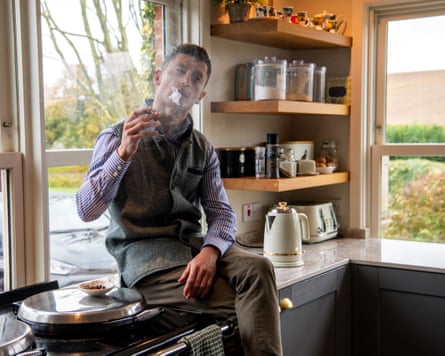
Now, as he counts each new day of being sober, Murphy is mortified by his actions that night. His new book, Sacrifice, is an unsparing account of the all-consuming demands jockeys face and he admits that drink can be a refuge from gruelling travel, the constant need to “waste” and make weight and the perennial hazards of riding a racehorse at 40mph.
Most of all, as he writes in his diary of last year’s championship victory, Murphy is tormented by a voracious need to win. Yet even generational jockeys lose more than three-quarters of their races. “It takes its toll if you try and escape and hide from it, because that’s when I was most susceptible to drinking to black out.”
He now reminds himself, as soon as he wakes, about the importance of not drinking today. “In 2024 I prayed to be sober every day, and then I forgot. I still prayed that my family are healthy every single morning and night but it shows that, when someone really wants to drink, being sober is no longer on the priority list.”
That quest is now paramount and Murphy attends weekly Alcoholics Anonymous (AA) meetings in different cities, wherever he is racing, and he stresses: “I’ve never had a problem saying: ‘I’m an alcoholic.’
“I listened to a man the other day. He was Irish and we were in London and he said: ‘Life is still shit. It’s not any better now that I’m sober. Actually it can feel worse – because I can’t run away from the shit parts. But one thing is clear to me. If I pick up a drink, it won’t be any fucking better.’ That stuck with me.”
His father and grandfather both lived for decades with alcoholism. Does he believe the disease has genetic roots? “I don’t know. Both of them never drank during my lifetime. My dad really was a wonderful father. He never told us not to drink but he used to tell us about the pitfalls on the way to mass. He never shoved it down our throats and my father’s been 35 years sober.”
Can he speak to him about his drinking problems? “I can. I tell him sometimes if I had a good [AA] meeting. About seven years ago he left this book on a table for me. It might have been the big [AA self-help] book. That was a hint.”
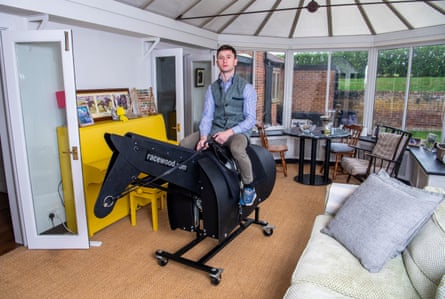
Murphy laughs quietly and then says: “Counselling and therapy is great – if you’re completely honest. But if you hide anything, it’s a waste of time, not just for you but for the person trying to listen. That year I was off racing I thought therapy was the best thing in the world and my therapist was a female god. But I decided I could try and drink like a gentleman again.”
Does he still see the same therapist? “I stopped seeing her in February and now I have a few. One man is Irish, and he’s dealt with Irish jockeys in the past. At Sporting Chance, I speak to a former alcoholic and heroin addict who has been clean and sober for 20-odd years. Those two fellows are very good. And there’s another female doctor who is also excellent. Do you know what I love about them? It’s often not scheduled. They’ll just ring up or WhatsApp message me for a chat. The problem with scheduled therapy is that you can almost plan what you want to say.”
He shakes his head. “Everyone’s looking for a reason for Oisin Murphy’s drinking. Something terrible must have happened as a child. But it didn’t. I had a wonderful childhood. And hence I didn’t have a drink problem at 20. But the bottom line is I found escapism but also an awful lot of trouble in the bottle.”
Murphy still has highs in the saddle: “The odd day where I feel like I did in Doncaster when I had that four-timer or round Salisbury a few weeks ago where I had another four-timer. There are a couple of hours where I feel I can do anything, that I can trust my instinct and walk on water. But it leaves and you don’t know when it’s going to return.”
In his book Murphy insists he was so drained by winning the 2024 jockey title that he would never chase the championship again. Yet here we are, a year on, and Murphy will be crowned once more as the leading jockey. “I doubt myself a lot,” he says and he will try to avoid eye contact with the other jockeys as they form two lines to applaud his achievement. Murphy feels almost guilty.
“Maybe it’s the realisation that a lot of the guys are as good, and talented, as me. They just don’t have the number or the quality of horses to ride. Maybe they aren’t as lucky in being able to communicate as well, but I don’t think there’s much separating us.”
Jockeys risk serious injury, paralysis, even death and, as Murphy points out, most of his colleagues in the weighing room are doing “the exact same hours” as him, hacking up and down the motorways, riding seven days a week without the plaudits or the money he earns.
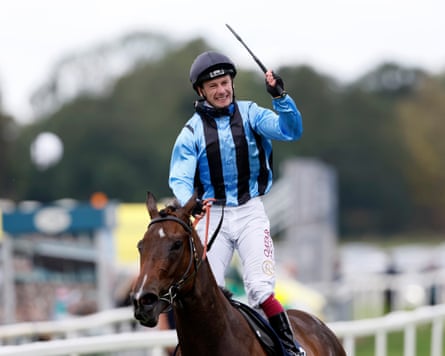
Murphy loves riding great horses and he is obsessed with winning, but his hinterland extends beyond racing. He talks about the crisis in Afghanistan and devastation in Gaza. “As I’ve got older, I’ve realised I don’t want to get too wrapped up in horse racing. I need to educate myself on other matters because I don’t want to be one of those fellows that’s still riding and he isn’t very good any more – and there’s nothing else to discuss.”
He is “really interested in insurance” and the poetry of Plath. Murphy recently bought a new anthology of the American’s poems. “You have to go quite deep to understand what she’s saying. She lived in a time where there was also a stigma around having a mental health problem. But there’s much of her work I never get depressed by even though I comprehend how she’s leaving [the world].”
He answers decisively when I ask him for his favourite Plath poem: “Poppies in July. You feel the want and lust for escape.” It’s a short and painful poem. Yet Murphy stresses that, unlike Plath, he doesn’t experience depression. “Being busy helps because I have to go out early every morning, I’ve got things to do.”
His searing focus is exhausting, but more manageable now. “I remember the 2019 championship season, when I was so tired and the pressure went up. But I was lacking sleep because I’d been drinking heavily. Now, on the whole, I’ve been sleeping well. I don’t feel exhausted. My lifestyle has never been better managed. It’s still hectic but it’s not chaotic.”
As he gently waves away the pall of smoke around him, Murphy nods with the hard-won knowledge that now frames his life as a champion jockey and an intelligent yet vulnerable man. “It will remain absent of chaos provided I stay sober.”
In the UK, Action on Addiction is available on 0300 330 0659.
.png)
 4 hours ago
1
4 hours ago
1





